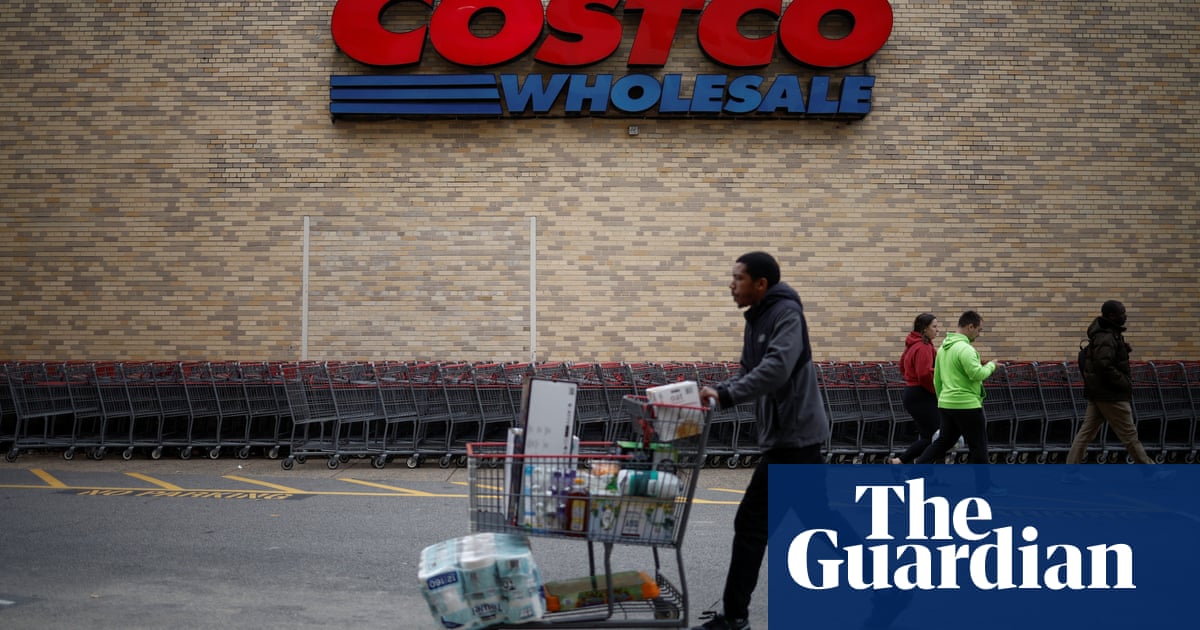For workers in retail, the day after Thanksgiving, Black Friday, marks the beginning of the busiest time of year.
Though the nature of shopping has changed in recent years, with online purchases competing more with brick and mortar sales and sales “days” lasting for weeks at a time, US retail sales between Black Friday and so-called Cyber Monday (at the end of the holiday weekend) are projected to grow 5% this year in the US, hitting a record $75bn.
More than 4 million people in the US work in retail sales, with a median hourly wage of $16.30 an hour, but working conditions, benefits and pay can vary widely between employers, especially as less than 5%of the workforce is unionized.
“The holiday is a frenzied time for shopping. Sometimes stores will extend their hours, but unfortunately workers will remain an afterthought during the holidays,” Margaux Lantelme, a retail employee at REI in Chicago, told a press conference held by the Retail, Wholesale and Department Store Union (RWDSU) to address issues they face during holiday shopping seasons. Workers at REI in Chicago voted to unionize in May 2023 but are still fighting to secure a first union contract.
“People are working longer hours, often understaffed for the amount of traffic. Rarely, if ever, is there any kind of holiday bonus time,” Lantelme said. “And to top it all off, workers are often met with even more impatience and rudeness from customers than usual.”
She argued the issues that drove her and her coworkers to unionize are exacerbated during the holidays, such as scheduling issues and understaffing.
“On top of being overworked during the holidays, there is also the expectation that workers remain available to operate the store at a time that everyone wants to take it easy and be with family,” she added.
“It’s not fair that retail and service workers are expected to give up important time with family for a job that ultimately does not care about or value them at all. We are being asked to prioritize a business over our personal lives, and that business would never prioritize US workers over their profits.”
Other retail employees criticized the tendency of customers to take out holiday stress and frustrations on frontline employees.
“You definitely notice stress for sure, people are short-tempered. There’s a lot of disgruntled attitudes flying around during this time of the year with our local customers,” said Cynthia Russo, who has worked at Bloomingdale’s in New York City for over 18 years and is a member of RWDSU Local 3.
Kathryn Harper, a senior bookseller at McNally Jackson, an independent bookstore in New York City, said “people just forget their manners” around November every year.
after newsletter promotion
“We’re going to give you excellent customer service, but when you leave, you get to check those things off on your to-do list, and I have to go back to seven more hours of choosing gifts for people who are stressing,” she said.
A produce manager at a Stop & Shop grocery store on Long Island, New York, Edwin Quezada, said the treatment of frontline workers during the Covid-19 pandemic as “heroes” and “essential” has dissipated.
“We’re not treated like we were treated during Covid, where we used to get the ‘thank you’’s and ‘we appreciate what you do,’” said Quezada. “During this time of year we want to keep it joyful and to keep it joyful is to have patience with us.”
Joan Solomon, a longtime Macy’s employee in New York City, noted the holiday shopping season isn’t as busy as it used to be, but the stressors and concerns about the safety of employees remain. New York recently passed a law requiring retailers to adopt safety measures in response to a rise in workplace violence toward workers, but it doesn’t take effect until next year.
“I know the holiday season is rough,” she said. “We just have to do our jobs, be merry, be happy, and go home to our families.”

